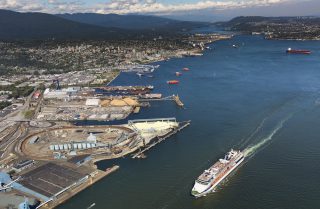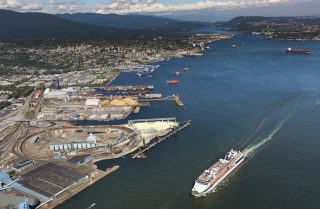As a new report reveals that shipping is of great value to Canadians across the country, the industry, represented by the Chamber of Shipping of British Columbia (COSBC), seeks assurance from the Government of Canada that coastal management will recognize the need to secure marine trade corridors through a focused spatial planning effort.

The Clear Seas Centre for Responsible Marine Shipping recently released a study, “The Value of Commercial Marine Shipping to Canada”, estimating the economic value of commercial shipping at CAD 30 billion (USD 22.3 billion). At 1.8% of the Canadian economy, ships move more than CAD 200 billion worth of goods to and from global markets.
According to the Chamber of Shipping, these figures reflect a dependence on marine transportation to support trade activity as Canada pivots its focus to markets overseas and increasingly away from a historic over-reliance on its US neighbor.
While Canadian international trade continues to grow, the federal government is moving to meet its commitment to protect 10 percent of Canada’s coastal waters by 2020. This includes an announcement dated May 24 of establishing a large marine protected area to the approaches of binational waters and major ports in Canada and the US on the west coast.
“As important as this effort is, government actions to date lack integration of risk planning and mitigation, conservation and protection, and trade objectives,” The Chamber of Shipping said.
“Coastal management must also address areas of high activity where the need for sustainable growth should be proactively managed,” Robert Lewis-Manning, Chamber of Shipping President, commented.
“This should include the establishment and management of marine trade corridors with provisions that build confidence for indigenous and coastal communities. The current federal approach is overly focused on large area targets and does not appropriately address current and future trade needs,” Lewis-Manning added.
The Chamber said it supports and recognizes the importance of the protection of the country’s pristine coast.
At times when the shipping industry continues to invest heavily to reduce the environmental impact of its operations both locally and globally, ports in British Columbia were the first to implement ballast water exchange programs and shore power technology in Canada, according to the Chamber. Furthermore, in August 2017, vessels will support a voluntary speed reduction trial in Haro Strait to assist in the development of a recovery strategy for Southern Resident Killer Whales.
Source: http://worldmaritimenews.com


